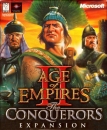Based on my experiences, I can easily confirm the $12 of a $60 game going to the retailer. (Wholesale is, in most standard cases, 80% of retail for video games. Special deals may be negotiated for sales, but this is not the normal wholesale price.) However, the $12 for royalties sounds high. In the SNES days, the royalty was $10, regardless of the original price of the game. It was part of why 3rd party companies hated Nintendo and the cartridge- since Nintendo didn't have to pay their own licensing fee, they shaved that $10 off the retail price. So you had Donkey Kong Country coming out at $50, versus pretty much every 3rd party game at $60. This was the start of where "can't compete with Nintendo" came from, but that's drifting off-topic.
So, even if I do allow that $12 through to royalties, it makes the figures initially seem right. But then Pachter goes on to make a generalization- about ALL developers being paid a flat fee. This will vary based on the contract- some larger developers know that their games will sell, and could demand a portion of sales revenue. This is where things get hairy, as this will vary by contract. Going by the Infinity Ward lawsuit to Activision, it would stand to reason that their contract had a profit sharing clause in it. This, of course, would eat into that $36 publisher take.
And the publisher has other costs to consider- they are the ones who have to handle (and cover the cost of) any defects, distribution, printing, etc. And if they press too many copies, they have to take the loss. A game dropping in price fast only reduces the take that the publisher gets. Note that the retailer paid $48 for the game, and the publisher sent $12 over to Sony/MS. But now it's returns time. A retailer returns a game, and expects their full $48 back. The publisher is now at -$12 on this game, since they don't get a refund. This is what leads to the price drops on existing stock. The publisher comes to an agreement with stores to change the retail price to $40, making wholesale $32, and refund $16 per copy. And this $16 comes from 1 place: the publisher's cut. They may be able, assuming that royalties are a percentage, to get the lower royalty cost on further sales out, but what is out is paid. And those $40 games that were $60 are actually worth less to the publisher than the newer ones shipped out for $40. ($36-$16 refunded versus $24.)
It's a very nice simplification that has some basic understanding of where the money goes. But it really glosses over the intricate details that makes contract law so changing. So we still can't say for certain where every penny is going...
-dunno001
-On a quest for the truly perfect game; I don't think it exists...
























































